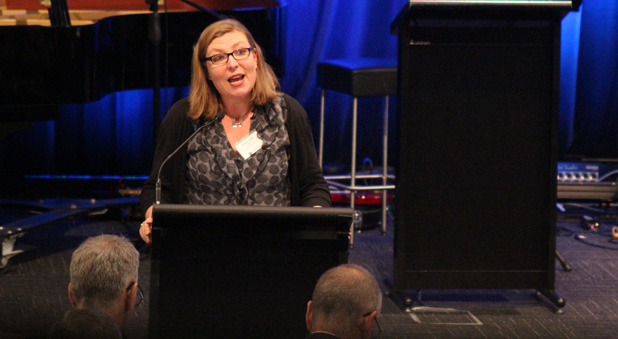The Domestic Violence Task Force of the Sydney Diocese has spoken of the prevalence of domestic violence and the state of training in its first report for Synod.
The task force, which includes a psychologist, doctor and counsellors as well as senior ministers and the Archdeacon for Women’s Ministry, was convened last year to develop a diocesan response to the issue encompassing research, pastoral guidance, education and training.
In the report, the task force committee chairman the Rev Canon Sandy Grant said the panel surveyed diocesan rectors about their contact with domestic violence cases, surveyed training institutions and schools about their educational programs, and spoke directly to domestic violence victims.
At the outset, the group acknowledged that the traditional associations of domestic violence are with acts of physical violence within relationships occurring in the home but this understanding fails to grasp the complexity of the phenomenon. It accepted a definition from the National Council to Reduce Violence against Women and Children that “a central element of domestic violence is that of an ongoing pattern of behaviour aimed at controlling one’s partner through fear” and said the term should encompass emotional, verbal, social, economic, psychological, spiritual and sexual abuse as well as physical assault.
Canon Grant, on behalf of the task force, said it had noted “there was anecdotal evidence that family violence is causing increasing concern amongst faith communities and their leaders. The report acknowledges the importance of faith communities in interacting with people affected by family violence, to educate, influence, respond, support and make referrals. Faith communities are described as ‘vital settings’ for dealing with family violence.”
The committee undertook a survey of rectors in the Diocese to determine how many had encountered cases of domestic violence in parishes in the past five years. Of 148 responses, 333 cases had been encountered, or an average of 2.5 per rector. Of those, 223 cases had involved a pastoral response from the rector. The survey also concluded there should be greater awareness, training and education about the problem.
The Professional Standards Unit now requires all ministry staff to have compulsory training about domestic violence. The committee’s inquiries also found that Moore Theological College and Ministry Training and Development include training on the issue, but that diocesan schools varied in their approach to educating students. Only about a quarter of schools surveyed covered the issue specifically in Personal Development, Health and Physical Education (PDHPE) classes. However, a new PDHPE syllabus is expected to specifically address the issue from next year onwards.
Synod urged the Task Force to continue its work, with a focus on developing guidelines for a pastoral response to the problem of domestic abuse.
An update on activities from Canon Grant and Archdeacon Kara Hartley was presented on the third night of the meeting.
Canon Grant urged clergy and church workers to preach and speak against domestic violence, rejecting the twisting of Scripture to justify abuse of any kind.
Archdeacon Hartley said there was still more work to be done to develop pastoral guidelines but, in the meantime, the motion which was passed by Synod encourages ministers – whenever they receive an allegation of domestic abuse – to consider contacting the PSU for advice on the best practices for pastoral care.
Photo: Archdeacon Hartley speaking during Synod debate


















